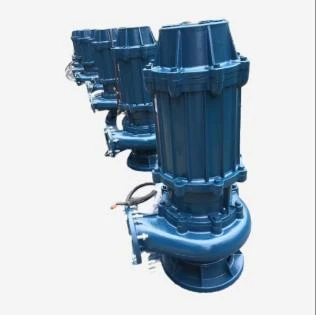Danish
- Afrikaans
- Albanian
- Amharic
- Arabic
- Armenian
- Azerbaijani
- Basque
- Belarusian
- Bengali
- Bosnian
- Bulgarian
- Catalan
- Cebuano
- Corsican
- Croatian
- Czech
- Danish
- Dutch
- English
- Esperanto
- Estonian
- Finnish
- French
- Frisian
- Galician
- Georgian
- German
- Greek
- Gujarati
- Haitian Creole
- hausa
- hawaiian
- Hebrew
- Hindi
- Miao
- Hungarian
- Icelandic
- igbo
- Indonesian
- irish
- Italian
- Japanese
- Javanese
- Kannada
- kazakh
- Khmer
- Rwandese
- Korean
- Kurdish
- Kyrgyz
- Lao
- Latin
- Latvian
- Lithuanian
- Luxembourgish
- Macedonian
- Malgashi
- Malay
- Malayalam
- Maltese
- Maori
- Marathi
- Mongolian
- Myanmar
- Nepali
- Norwegian
- Norwegian
- Occitan
- Pashto
- Persian
- Polish
- Portuguese
- Punjabi
- Romanian
- Russian
- Samoan
- Scottish Gaelic
- Serbian
- Sesotho
- Shona
- Sindhi
- Sinhala
- Slovak
- Slovenian
- Somali
- Spanish
- Sundanese
- Swahili
- Swedish
- Tagalog
- Tajik
- Tamil
- Tatar
- Telugu
- Thai
- Turkish
- Turkmen
- Ukrainian
- Urdu
- Uighur
- Uzbek
- Vietnamese
- Welsh
- Bantu
- Yiddish
- Yoruba
- Zulu
Telephone: +86 13120555503
Email: frank@cypump.com
dec . 07, 2024 06:53 Back to list
efficient double suction sludge water pump for effective water ...
Efficient Double Suction Sludge Water Pump for Effective Water Management
Water management is a critical concern in various industries including municipal water treatment plants, sewage treatment facilities, and agricultural applications. The efficiency of how water, especially sludge, is pumped affects operational costs, environmental sustainability, and the overall effectiveness of water management systems. One of the most significant innovations in this field is the development of the efficient double suction sludge water pump, which plays a vital role in effectively handling wastewater.
Understanding Double Suction Technology
Double suction pumps are designed with two inlets on either side of the impeller. This unique configuration allows for a balanced axial thrust and reduces the load on bearings, thereby enhancing the overall efficiency of the pump. Compared to single-suction pumps, double suction pumps can handle larger volumes of fluid with less energy. This efficiency is crucial in sludge applications where the density and viscosity of the liquid can pose challenges.
Advantages of Efficient Double Suction Sludge Pumps
1. High Efficiency The primary advantage of double suction sludge pumps is their ability to operate at a higher efficiency level. This means they consume less energy while delivering a greater flow rate. In an era where energy costs are a primary concern, such efficiency can translate to significant cost savings over time.
2. Durability These pumps are constructed with robust materials designed to handle abrasive sludge, minimizing wear and tear over time. This durability extends the lifespan of the pump, reducing maintenance costs and downtime for repairs.
3. Lower Maintenance Needs The design of double suction pumps requires fewer components and is generally easier to maintain than their single-suction counterparts. This simplicity is especially beneficial in environments where maintenance personnel may not be readily available or where frequent service interruptions must be avoided.
efficient double suction sludge water pump for effective water ...

4. Versatility Efficient double suction sludge water pumps can manage varying types of sludge, from municipal sewage to industrial byproducts. Their ability to adapt to different operational conditions makes them invaluable in diverse applications, including wastewater treatment, mining, and construction.
5. Reduced Vibration and Noise Levels The balanced design of double suction pumps not only enhances operational efficiency but also significantly reduces vibrations and noise. This feature is particularly important in urban environments and sensitive ecosystems where excessive noise can be disruptive.
Applications in Water Management
Efficient double suction sludge water pumps are widely used in wastewater treatment plants for the removal of sludge during the purification process. By ensuring effective sludge management, these pumps contribute to cleaner water being returned to the environment or redirected for reuse. Additionally, they are employed in industrial settings for managing effluent, ensuring compliance with environmental regulations.
In agricultural settings, where proper water management is essential for crop production, these pumps facilitate efficient irrigation practices by effectively handling wastewater from animal farms and processing plants. Their ability to manage high solids content in water makes them ideal for sediment-laden sources.
Conclusion
The advent of the efficient double suction sludge water pump marks a transformative step in water management technologies. By combining high efficiency, durability, and versatility, these pumps offer effective solutions for tackling the challenges associated with sludge handling in diverse industries. As industries continue to seek sustainable practices and cost-effective operations, the adoption of these advanced pumps will undoubtedly play a pivotal role in moving towards more responsible water management systems. With efficiencies improving and innovations continuing to emerge, the future of water management looks promising.
-
Heavy-Duty Mining Sludge Pumps - Wear-Resistant Slurry Handling
NewsAug.02,2025
-
Horizontal Split Case Pump with GPT-4 Turbo | High Efficiency
NewsAug.01,2025
-
ISG Series Pipeline Pump - Chi Yuan Pumps | High Efficiency, Durable Design
NewsAug.01,2025
-
Advanced Flue Gas Desulfurization Pump with GPT-4 Turbo | Durable & Efficient
NewsJul.31,2025
-
ISG Series Vertical Pipeline Pump - Chi Yuan Pumps | Advanced Hydraulic Design&Durable Construction
NewsJul.31,2025
-
ISG Series Vertical Pipeline Pump - Chi Yuan Pumps | Energy Efficient & Low Noise
NewsJul.31,2025










